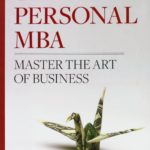The Millionaire Next Door
Thomas Stanley and William Danko
Usually, the wealthy individual is a self-employed business-man who has lived in the same town for all of his adult life. This person owns a small factory, a chain of stores, or a service company. He has married once and remains married. He lives next door to people with a fraction of his wealth. He is a compulsive saver and investor. And he has made his money on his own. Eighty percent of America’s millionaires are first-generation rich.
Big Hat, No Cattle. The book compares PAWs (prodigious accumulator’s of wealth) and UAWs (under accumulators of wealth). Net worth millionaires do not live a high material possession lifestyle. Instead, they have a significant portion of their wealth in stocks bonds or their businesses.
How to determine if you’re wealthy: Multiply your age times your realized pretax annual household income from all sources except inheritances. Divide by ten. This, less any inherited wealth, is what your net worth should be.
Many of the millionaires are first-generation Rich. The reason is they are entrepreneurial in spirit and have not acclimated or been swayed by the American view of material and consumerism.
FRUGAL, FRUGAL, FRUGAL.
Millionaires live well below their means. They don’t live lavish lifestyles and avoid the pitfalls of high paid athletes. They have rarely paid more than $360 for a suit because they don’t have to show up at a Board meeting. Shopping at Target and outlet malls is standard practice. They became millionaires by budgeting and controlling expenses, and they maintain their affluent status the same way. Millionaires invest, but they invest in the things that they know very very well. If you have advanced knowledge of a product or service that is probably traded, then buy stock in that company.
To build wealth, minimize your realized (taxable) income and maximize your unrealized income (wealth/capital appreciation without a cash flow). If you’re not yet wealthy but want to be someday, never purchase a home that requires a mortgage that is more than twice your household’s total annual realized income.
TIME, ENERGY, AND MONEY.
Simply: People who become wealthy allocate their time, energy, and money in ways consistent with enhancing their net worth. Prodigious Accumulator of Wealth out works nearly twice the amount of Under Accumulators of Wealth (UAW) in this category.
High-income PAWs are significantly less likely than UAWs to hold graduate degrees, law degrees, or medical degrees. Millionaires typically indicate on our survey “business owner” with “some college,” “four-year college graduate,” or “no college. Begin earning and investing early in your adult life. The goal is to enable you to set aside for investing purposes at least 15 percent of your pretax income each year.
There is an inverse relationship between the time spent purchasing luxury items such as cars and clothes and the time spent planning one’s financial future. Most high-income generators, whether they are PAWs or UAWs, work more than forty hours a week. Typically, the amount of time remaining each week is allocated in ways that are congruent with their goals.
UAWs are worried about:
1: Paying increasingly high federal income taxes
2: Increased government spending and the federal deficit (because it will take a bite out of his income tax)
3: A high rate of inflation
4: Increased government regulation of business and industry
UAWs Agree:
42 percent of the millionaires we interviewed for our latest survey had made no trades whatsoever in their stock portfolios in the year prior to the interview. – they are buy-and-hold traders.
Operate your household like a productive business. The best businesses hire the best people.
YOU AREN’T WHAT YOU DRIVE
THEY BELIEVE THAT FINANCIAL INDEPENDENCE IS MORE IMPORTANT THAN DISPLAYING HIGH SOCIAL STATUS. – Money should never change one’s values. . . . Making money is only a report card. It’s a way to tell how you’re doing.
Car buying – most millionaires drive for F150s or American made cars. More than one in five patronize dealers who are their clients or customers. Networking is alive and well among the affluent in America. Many wealthy self-employed business owners believe strongly in reciprocity. In purchasing cars that are two or three years old, they feel that the original owner has paid while the vehicle was depreciating in value. They often plan to resell their used acquisition in two or three years and recoup much of their initial payout.
entrepreneurs account for a disproportionately large share of the millionaires in America.
ECONOMIC OUTPATIENT
PAWs and millionaires avoid supporting their adult children.
Giving leads to more consumption rather than saving and investing.
GIFT RECEIVERS IN GENERAL NEVER FULLY DISTINGUISH BETWEEN THEIR WEALTH AND THE WEALTH OF THEIR GIFT-GIVING PARENTS.
GIFT RECEIVERS ARE SIGNIFICANTLY MORE DEPENDENT ON CREDIT THAN ARE NONRECEIVERS.
RECEIVERS OF GIFTS INVEST MUCH LESS MONEY THAN DO NONRECEIVERS.

 The Personal MBA – Josh Kaufman
The Personal MBA – Josh Kaufman